- Home
- Brian Garfield
Deep Cover Page 5
Deep Cover Read online
Page 5
They had edited him down to essentials but the result did not displease him because they had kept the context intact, which indicated that the news-bureau chief was probably on his side, and for openers that was a good sign.
“It’s been brought to my attention that the Pentagon and its tame mouthpieces in both houses of Congress intend to sneak their new Phaeton Three program through passage in the form of riders casually attached to unimportant defense bills. I think the people of this country need to be warned of this attempt to stifle legitimate discussions and inquiries.… We’re talking about offensive weapons, not defensive systems. We’re talking about a terrifying new form of MIRV—multiple independently targeted reentry vehicle. We’re talking about deploying a system where each single missile can deliver more than sixty miniaturized nuclear warheads on more than sixty separate enemy targets—and each one of these mini-warheads will have twice the destructive power of the bombs that wiped out Hiroshima and Nagasaki. We’re talking about a defense establishment that’s so arrogant it expects to ram down our throats a quantum jump in the arms race—an apocalyptic program—that they want us to swallow without a murmur of dissent.”
They cut the rest of it and jumped to the Q & A period. There was some narrative commentary by the reporter and they had edited it neatly up to the beginning of the interviewer’s question: “Senator, you’ve never associated yourself with the disarmament people before. Would you say this stand of yours is a new departure?”
“I’m a firm supporter of national defense. The Pentagon wants us to believe that anybody who questions their hardware salesmen must be a coward who wants to appease the other side the way Chamberlain appeased Hitler. The fact is we have the military capacity to destroy the Soviet Union utterly—we can overkill them forty times over—and we simply don’t need another new weapons system that could prove more dangerous to us than to them.”
“Senator, you’ve referred to that ‘danger to ourselves’ several times now. What danger do you mean?”
“Two things. First, what kind of weapons will the other side be forced to develop to counteract ours? And second, what about the risk of accidental detonation? The Phaeton system would deploy thousands of armed hydrogen warheads where we now have hundreds. Multiply the stockpile by a hundred and you multiply the risk of unintentional explosion by a thousand. A calculated risk is only justifiable when you’ve got something to gain from it, and we’ve got nothing to gain by this. The odds aren’t acceptable. I’m saying it’s time, right now, to stop giving the bomb merchants free rein.”
“That’s pretty strong talk, sir.”
“I feel strongly about it. We hear a lot about boondoggles and pork barrels and Federal giveaways. I say let’s not give away another thirty billion dollars for doomsday toys nobody needs.”
The screen cut away and the moderator said deadpan, “There has been no reaction yet from the White House or the Pentagon to Senator Forrester’s remarks.” A kitchen cleanser replaced the moderator’s face and Forrester switched the set off and smiled broadly when he heard the telephone ring: whoever it was, he wasn’t wasting any time, but Forrester let it ring four times before he picked it up.
It was Woody Guest.
The elder Senator’s voice was affable and hearty. “Nice little minstrel show you put on there, boy. Marvelous coverage, too. Did you catch yourself on CBS?”
“They gave it more time than I’d expected. How are you, Senator?” Forrester settled hipshot against the corner of the writing desk and sipped his drink.
“A mite ruffled. Candidly, young friend, you caught me off guard.”
Think of that.
“If I hadn’t had an off-the-record tip,” Woodrow Guest continued, “from a journalistic acquaintance, I’d have missed your performance altogether.”
“That would have been a shame.”
“It would.”
“Since you evidently want me to ask, what’s on your mind, Senator?”
“You didn’t play fair with us, son. Why didn’t you come to me first?”
“Would it have got me anywhere?”
“Might have. After all, in our exclusive little club we have traditional ways of handling the decision-making process and getting things ironed out. You break with tradition, young friend, you make things uneasy for everybody.”
“In my judgment this is no time for clubhouse rules.”
“No issue’s too important for decent courtesy, son. You’ve made a bad error.” Guest’s voice changed. “God damn it, Alan, have you got your brains up your ass or what? What in God’s name got into you? Just what did you have in mind?”
“How about saving the Treasury thirty billion dollars, for openers.”
“Balls. You’re forgetting where you come from. I won’t be able to hold up my head in Phoenix after tonight.”
“I’m sure you’ve got time enough left to compose your suicide note.”
Guest ignored it. “I had my suspicions but now I’m sure of it. You’ve joined the liberal losers at last—the ones who find success vulgar. I should have seen it coming.”
“I haven’t joined the crazies just yet, Senator.”
“You may as well. Nobody else is going to give you a place to hang your hat after this little display.”
“Not even you?”
“Not even me. Thank God I’m not the one who’s up for reelection this year. At least I won’t have to boot you off my ticket.”
“I take it that means I’m not to count on your venerable support in the primary.”
“You can put that in the bank, son. And you won’t get much support from the Republican machinery anywhere.”
“All right, Senator. We’ll just have to wait and see how it all develops, won’t we.”
“Nothing to wait for, young friend. We’ve dealt with mavericks on the Hill before. It’s not your private ball park up here—you came into our ballgame, son, you play by our rules or else you get out of the park.”
“Receipt acknowledged, Senator.”
“You think about it, that’s all. I’ll get back to you after you’ve had time to mull it over. Take care now.”
Forrester depressed the cradle button and waited with the receiver in hand until it rang again as he knew it would. He was smiling a little. “Forrester here.”
It was Les Suffield. “I’m still at your office and the phones are jumping off the desks. What do I tell the ink-stained hacks?”
“You have nothing to add to what I said at the press conference. You’re not empowered to speculate on questions I didn’t cover.”
“Maybe. Christ, you didn’t half sling it all into the fan, did you?”
“If you pull punches you don’t get much coverage.”
“Too much coverage, Senator. Too much. You take the lid off the honey jar, you’re bound to get all the predators swarming around. Just what effect did you expect to get, breathing fire like that?”
“Not as much as I’d like. It will roll off the ones who want to stay indifferent, it’ll appear true to those who want to believe it, and it’ll be dismissed as a pack of lies by those who’ve committed themselves to their own pack of lies.”
“All right. So why did you do it?”
“Let’s just say it was a fiendish impulse.”
“Christ on a crutch. All right, you’re on the nine-o’clock flight in the morning out of National, tickets at the VIP lounge for you to pick up. If I were you I’d leave the phone off the hook, otherwise you won’t get any sleep.”
“Senator Guest has already been heard from. I’m unlisted so there won’t be too many more.”
“What did he say? As if I can’t guess.”
“I’ve been drummed out of the party and he’s about to bust my saber across his knee.”
Suffield laughed unpleasantly and hung up. Forrester put the phone down properly because there was one more call he had to take tonight and he would know it when it came. The instrument began to ring immediately but he ignored it
after the third ring and went into the kitchen feeling aggressive and alive, up on his toes, full of anticipatory adrenalin. He made another drink and sorted through the refrigerator to find the makings of a supper; the phone kept ringing angrily but he shut it out and thought of Angie, half-wishing she could be here for this fight and half-angry with himself for wishing it because he was very close now to putting her all the way behind him, and he knew he had to cover the last sprint toward escape even though it made him feel as guilty as if he were abandoning her. He supposed another woman would make the escape easier but no casual one-night stand would do it and he was not ready for anything deeper than that yet.
He let his free associations ramble and so he was presently thinking about Top Spode because Top was one of those easygoing philandering grasshoppers who never stored up winter food and went through life regarding women the way most men regarded good cigars, as something to be treasured briefly and discarded when they had served their purpose. Actually he was thinking about Top because he was expecting Top’s call. He kept listening for it but it didn’t come until after he had finished scraping the dishes and putting them in the dishwasher. Then he heard it, two rings and a pause, then two rings and another pause, and he headed toward it when it began to ring again.
“What have you got, Top?”
“A bad case of ring-around-the-rosy. Subject does not have the nitty-gritty. The job’s been subcontracted out.”
“Subject” was Congressman Webb Breckenyear, and “nitty-gritty” meant the specifications and budgetary breakdown on the Phaeton Three program. Breckenyear had farmed the assignment out.
“Why the hell would he do a thing like that?”
“I’ve only been on the job a few hours. What do you want out of me?”
“You’d better come out here. We’ll have to talk.”
“I’ll pick you up in twenty minutes.”
Forrester made a face. “All right, if you think it’s necessary.”
“Color me paranoid but let’s don’t take chances.”
Forrester jiggled the button until he got a dial tone, left the receiver off the hook, and went up to the bedroom to get his overshoes and coat. He went right past the framed photo of Angie on the chest of drawers and then abruptly turned back, took the photograph down and put it away face-down in the top drawer. It made him feel as if he had just made an important decision. He shouldered into the coat and went out the front door, working his gloves on while he took long slow breaths of the cold night air. It had stopped snowing and the fresh lie looked puffy and clean on the sloping lawns and roofs. He left overshoe spoor behind in the thin white crust on the brick walkway when he went out to the curb and stood waiting in the wind, enjoying the crisp bite of it.
The reflected glow of headlights appeared at the road crest and the sleigh-bell chitter of tire chains reached his ears. Coming over the hill the lights seemed to bounce wildly before they settled down, stabbing him. Spode drew in at the curb and leaned across the front seat to open the door.
Forrester got in. Spode switched off the lights and engine; the windows immediately began to steam up. Forrester said, “I don’t see why your car’s any safer than my basement.”
“I go over it every other morning for bugs. Can you say the same thing for your basement?”
“I suppose not, but it’s pretty far-fetched to think—”
“I don’t think,” Top said mildly, “I just assume.”
“All right, then. What’s this about Breckenyear farming it out? Farming it out to whom?”
“That information wasn’t included in the price of my ticket. But I could make a pretty good guess, and so could you.”
It took a while for Forrester to work it out but in the end he said, “Ross Trumble.”
“Got to be.”
It fit. Trumble was a sophomore Congressman—Representative from the Second Congressional District of Arizona, which included Tucson and the southern counties, not excluding the defense plants, Davis Monthan Air Force Base, Fort Huachuca missile-test range and CBW laboratories, and the Tucson wing of ICBM and ABM silos. In his freshman term on the hill Trumble had made friends with Webb Breckenyear because Breckenyear chaired House Military Appropriations and Trumble was the property of the Arizona military-hardware manufacturers who had financed his campaigns. Now in his second term Trumble was a junior member of Breckenyear’s committee and since it looked as if the Phaeton contracts, once let, would go to Arizona corporations, Trumble was the obvious man to draw up the bill.
Webb Breckenyear was a Democrat and it would help show his bipartisan altruism to let Trumble handle the chore. Trumble was a Republican, somewhere to the right of Senior Senator Woodrow Guest; he had received Guest’s support in the election and no doubt would continue to receive it: Guest knew that if you demanded loyalty up, you had to show loyalty down, even when you didn’t like some of the players you had to root for. Besides, in less than four years on the Hill, backed by Breckenyear’s Southern Democrats and Guest’s centrist Republican wing, Trumble had insinuated himself powerfully. If there was another right-wing surge within the party like the ones that had taken off in 1964 and 1970, it was not beyond belief that Ross Trumble could wrest the Arizona Republican machine out of the Senior Senator’s grasp, and Guest was not going to make it easier for Trumble to try by backing Forrester’s leftish move. As far as Woody Guest was concerned, everybody except himself was expendable, but Senator Forrester was more expendable than Congressman Trumble. Forrester was in the fight all by himself and whatever support he was likely to get would come not from his own party but from the opposition, and in this election year even that would be muted. In traditional political terms Forrester’s move was suicidal, but politics was no longer as traditional as it had been. Of course his odds were still rotten but that was what made it an interesting fight.
“Ross Trumble,” he said. “All right, I don’t see any problem. Get them from him.”
Top was sitting up straight as he always sat with his long arms folded across his wide flat chest. The reflected light of the street lamp made highlights in his long glossy black hair. He said, “It’s so damn easy to tell a fellow to run it on up the flagpole when you don’t have to figure out how to stitch the flag.”
“If it was an easy job I wouldn’t need to have you do it.”
“Now you’re trying to flatter me.”
“And succeeding,” Forrester said. “What’s the flap?”
“Trumble used to be an FBI agent. He won’t be easy to crack.”
“He can’t keep those papers in his pocket twenty-four hours a day.”
“But he probably keeps them in a lock-up. You happen to know any unemployed safecrackers looking for work?”
“You may be making problems for yourself where there aren’t any to begin with. Maybe Trumble had security training once but he’s gone off the wagon and he’s got a lech for anything that wiggles. Why not get one of your lovely young friends to fry him while you take his place apart?”
“Two problems. One, the only girls I could trust with that kind of caper are Agency employees. But I don’t work for the Agency any more and the Agency frowns on its people freelancing. And two, Trumble’s leaving Washington day after tomorrow—back to Tucson for an indefinite stay. Like you.”
“Will he take the papers with him?”
“I guess that’s what he’s going out there for. To check out the details with the people at Matthewson-Ward and Shattuck. He wouldn’t be likely to leave the papers back here on top of his desk.”
“Then tail him out to Tucson and stick to him until you can pry open his files.”
“Yeah. Listen, you happen to know Diego Orozco up in Phoenix?”
“No.”
“Private detective, runs a confidential agency up there. I could maybe hire the use of one of his female operatives but it would cost you seventy-five a day plus travel and expenses. Eight cents a mile round trip Phoenix-Tucson, that’s twenty bucks, and expen—
”
Forrester’s laugh cut him off and Spode darkened and said, “Sometimes I forget you’re a rich son of a bitch. But it’ll have to come out of your pocket, you can’t very well charge it up to the Government. And I’m still not clear just how vital this package of papers is to whatever you’re planning to put across.”
“Vital enough. I thought you heard me the first time. I intend to use every stick I can get my hands on to beat this insanity to death, because if somebody doesn’t Trumble and Breckenyear and the hardware merchants won’t be satisfied until they’ve blown the world up from under us.”
“You’ve already got my vote, you know. I didn’t ask for a speech—all I want to know is how badly you want Trumble’s file. You want it even if it has to come with my head in a basket?”
“Make your own judgment, Top.”
“Like I said, I just work here.”
The Senator’s face moved. “I want to live and if I ever have a kid I want him to live. That’s what it breaks down to.”
Spode brooded at him. “It’s not just politics anymore, is it? You mean that.”
“I mean it.”
“Then I’ll get the papers for you. But maybe you ought to have the meat wagon and a crash crew ready to collect me.” Spode grinned with his teeth and reached for the ignition key and Forrester got out and watched the car drive away.
Chapter Three
Forrester changed planes at Chicago. The jet broke through the smog overcast and the top of the snowcloud layer was a soft cotton mattress beneath the motionless belly of the airplane. The stewardess brought him a cup of hot black coffee and smiled. “My folks live in Phoenix, Senator—they voted for you.”
“How about you?”
Her laugh stirred her short blond hair. “The first time you ran for Congress I was fourteen. Anyhow I live in Los Angeles—I can’t vote in Arizona. But I would if I could.”
She went forward, emphasizing the sway of her long hips because she knew he was watching. Her kind had voted him into office because by accident of birth he had the looks and charm that worked in a society which equated celebrity with importance and which favored a candidate who was at his amusing best on late-night television.

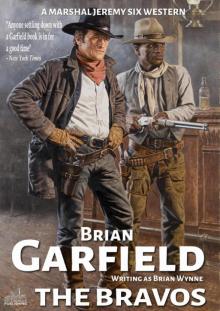 Marshal Jeremy Six #3
Marshal Jeremy Six #3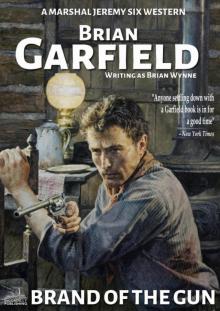 Marshal Jeremy Six #6
Marshal Jeremy Six #6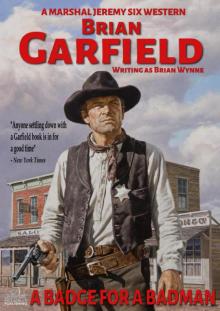 Marshal Jeremy Six #5
Marshal Jeremy Six #5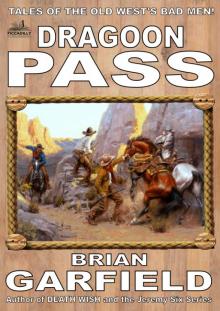 The Outlaws 2
The Outlaws 2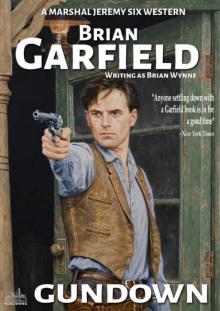 Marshal Jeremy Six #7
Marshal Jeremy Six #7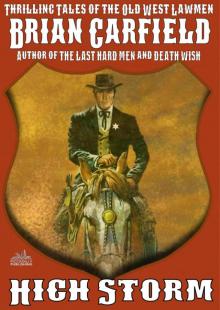 The Lawbringers 4
The Lawbringers 4 Marshal Jeremy Six #4 the Proud Riders
Marshal Jeremy Six #4 the Proud Riders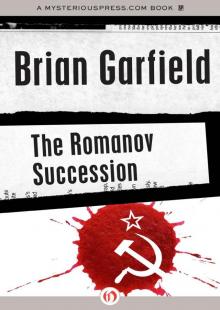 The Romanov succession
The Romanov succession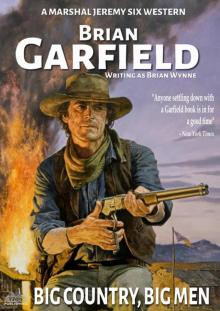 Marshal Jeremy Six #8
Marshal Jeremy Six #8 Sliphammer
Sliphammer Line of Succession
Line of Succession Deep Cover
Deep Cover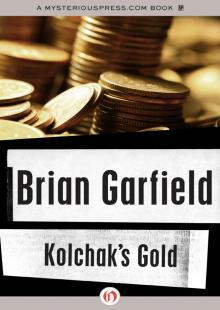 Kolchak's Gold
Kolchak's Gold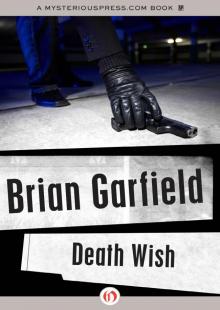 Death Wish
Death Wish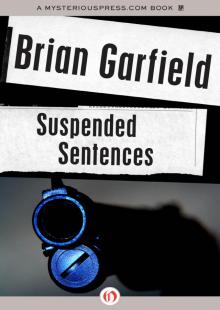 Suspended Sentences
Suspended Sentences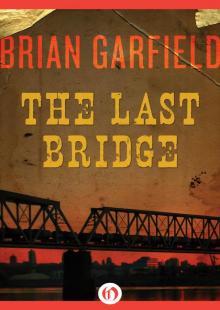 The Last Bridge
The Last Bridge Relentless
Relentless The Vanquished
The Vanquished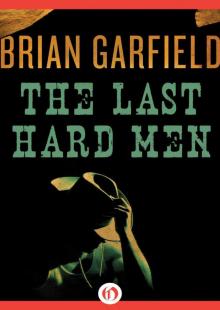 The Last Hard Men
The Last Hard Men Hit and The Marksman
Hit and The Marksman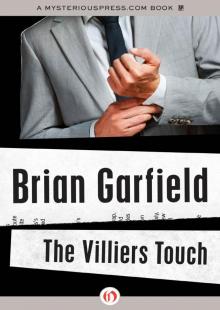 Villiers Touch
Villiers Touch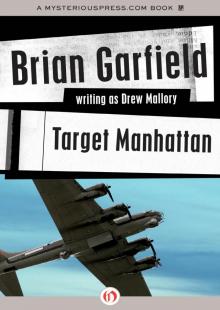 Target Manhattan
Target Manhattan Marchand Woman
Marchand Woman What of Terry Conniston?
What of Terry Conniston?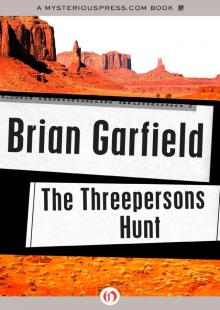 Threepersons Hunt
Threepersons Hunt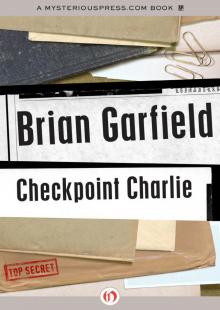 Checkpoint Charlie
Checkpoint Charlie Romanov Succession
Romanov Succession Necessity
Necessity Death Sentence
Death Sentence Fear in a Handful of Dust
Fear in a Handful of Dust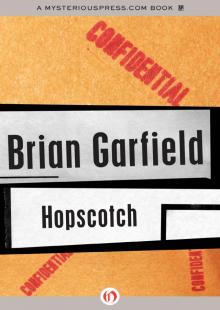 Hopscotch
Hopscotch